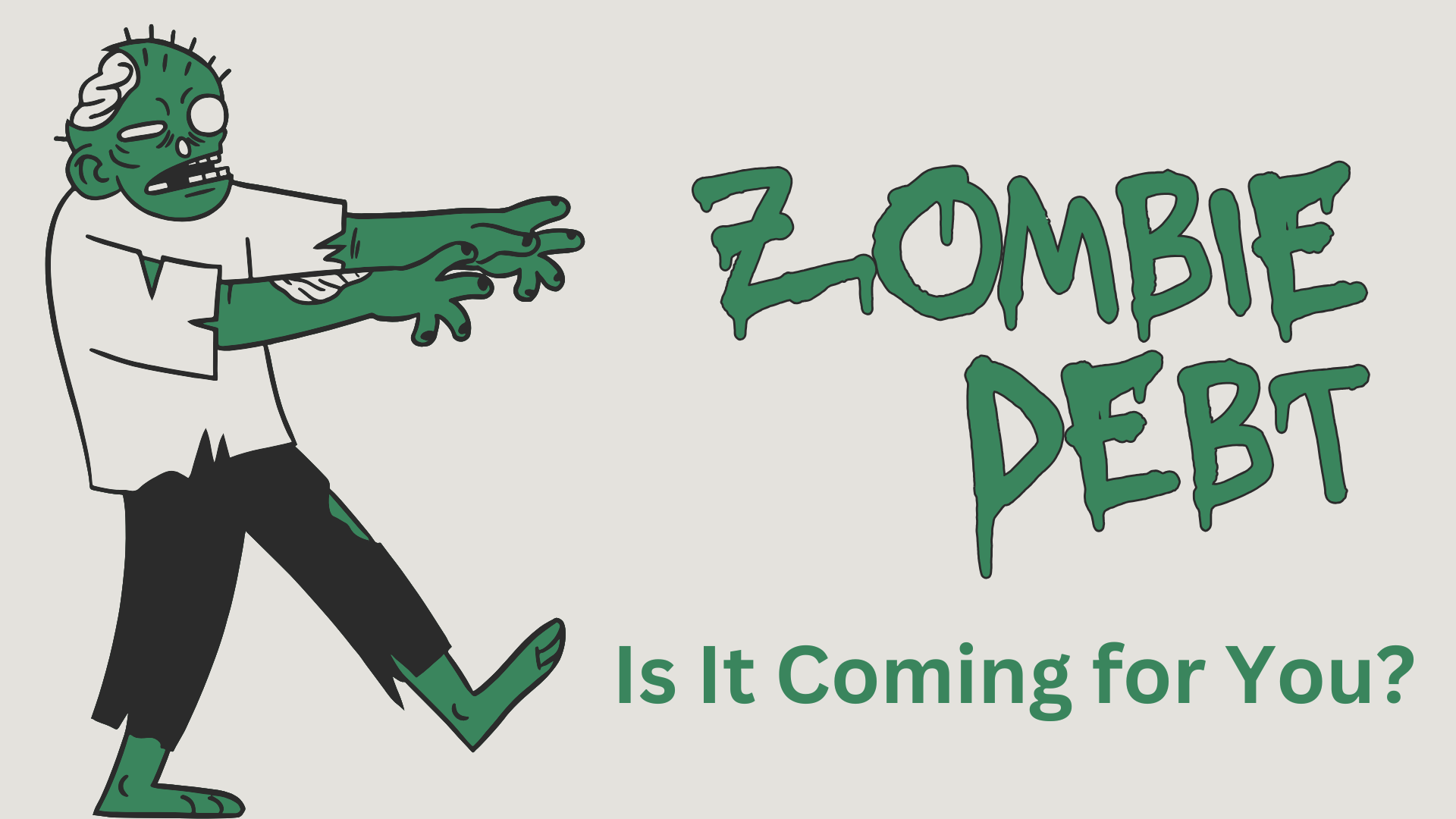
Zombie Debt: Is It Coming for You?
Zombie debt is old and often expired debt that could be revived after being purchased by a collection agency for pennies on the dollar — or less. These “debt scavengers” have plenty of incentive to cast a wide net and take aggressive steps to collect even a small portion of the original debt.
If you are contacted by a debt collector, it could be for a debt you already repaid or don’t owe. For debts written off by creditors long ago, some records might be lost or unreliable. If you don’t remember crossing paths with the creditor, it’s possible that the debt in question belongs to someone else with a similar name or is the result of identity theft.
One example is a recent wave of zombie second mortgages threatening families with the loss of their homes. After the 2008 housing crash, many homeowners had their mortgages modified and presumed (or were told) that their second loans were forgiven. Now that home prices have risen around the nation, more investors who bought defaulted second mortgages are moving to collect those debts, even if it means foreclosing on the homes.
Unfortunately, this is just one of the ways that zombie debt could come back to haunt you, and depending on the circumstances, you may or may not be responsible for paying it back.
More types of zombie debt
Time-barred debt. You may be contacted about a debt that is beyond the statute of limitations — the length of time during which you can legally be sued by a creditor or debt collector over an unpaid debt. These limits differ based on the type of debt and can vary widely by state, though they generally range from three to 10 years. When a debt is “time-barred,” a debt collector may still try to convince you to repay it voluntarily.
Discharged debt. This refers to debt that has been legitimately wiped out through a bankruptcy case. Settled debt. A lower payoff on non-secured debt (such as medical or credit-card debt) might have been negotiated with the creditor in exchange for forgiveness of the remaining balance.
Beware of scare tactics
Debt collectors are not allowed to use abusive language, constant harassment, or deception to intimidate you into repaying a debt that is beyond the statute of limitations or is not actually yours — but it’s been known to happen. They might threaten to sue, even if it’s illegal to do so, then offer to leave you alone if you make
a partial payment.
Don’t get tricked. In some states, making one small payment on an expired debt can reset the statute of limitations and bring it back to life. The collector could then legally pursue the entire amount. Repaying part of a debt that was never yours could be interpreted as admitting it does belong to you.
Tips for fighting off debt scavengers
How should you respond if you are contacted about a zombie debt? Don’t panic, and don’t immediately make a payment or provide any personal information. On the other hand, it might not be wise to assume it’s a scam and ignore calls or letters from a collection agency.
Start by asking for a debt validation letter, which should include information about the original creditor, the amount of the debt, and when it was incurred. Don’t say anything to a debt collector until you have a chance to research the details, verify the debt is really yours, and determine whether it falls within the statute of limitations.
If you confirm that the debt is a mistake, has already been paid, or is expired, send a letter disputing thedebt within 30 days (and keep a copy for your records). If it shows up as a delinquency on your credit report, you can also file a dispute with the credit agency. You are entitled to a free copy of your credit report weekly from each of the three nationwide credit agencies: Experian, TransUnion, and Equifax. Visit
www.annualcreditreport.com for more information.
Sometimes a zombie debt results from a long-forgotten charge and/or a bill left behind unknowingly when moving from one place to another. If you discover that you do owe the debt and have the money, resolving the unpaid account could help protect your credit. If you can’t pay the entire amount right away, you may be able to negotiate a payment agreement.
Receiving a collection notice for a home mortgage could be a more serious and costly threat. If you are contacted by an unfamiliar lender demanding money for a second mortgage, check the title report for any encumbrances or liens attached to your property. If you find one, consider consulting an attorney to help negotiate with the lienholder or challenge the debt in court, depending on your personal situation.
IMPORTANT DISCLOSURES
To the extent that this material concerns tax matters, it is not intended or written to be used, and cannot be used, by a taxpayer for the purpose of avoiding penalties that may be imposed by law. Each taxpayer should seek independent advice from a tax professional based on his or her individual circumstances.
These materials are provided for general information and educational purposes based upon publicly available information from sources believed to be reliable — we cannot assure the accuracy or completeness of these materials. The information in these materials may change at any time and without notice.